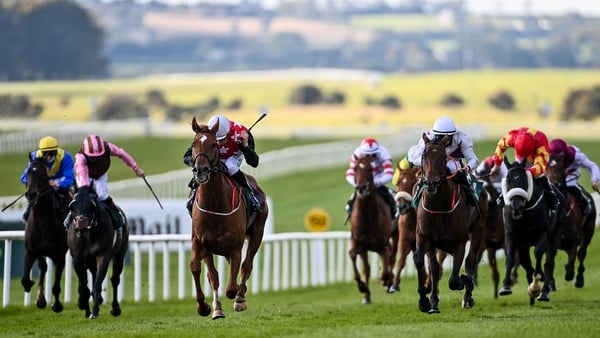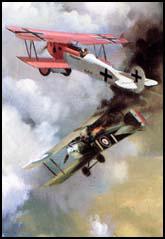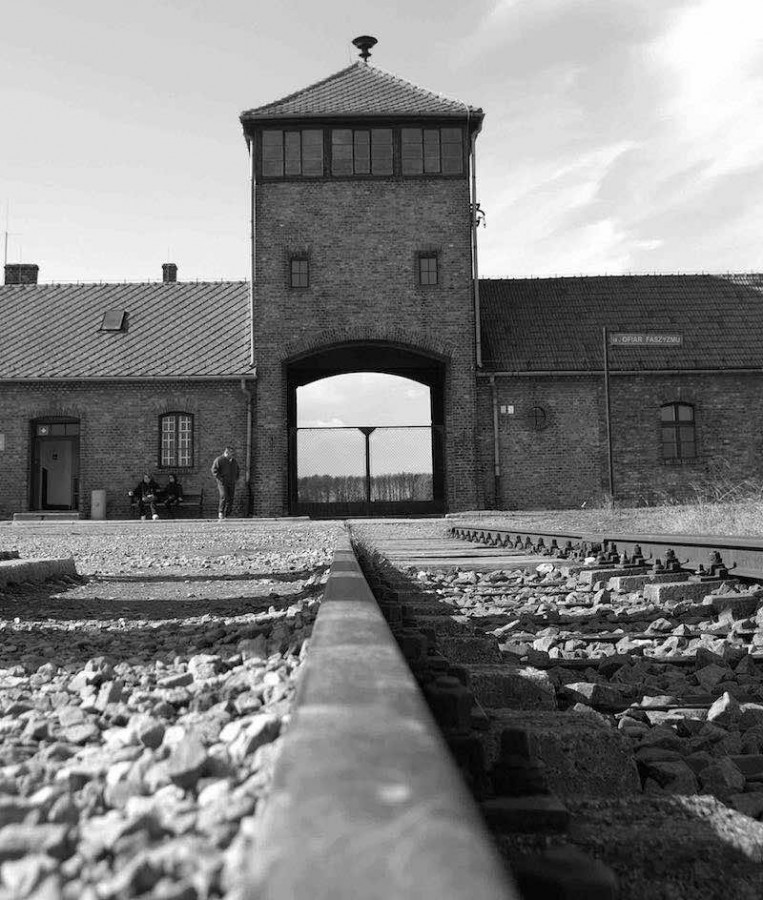
While war is full of uncertainty, one thing is clear: it is never black and white. No matter how just and right the cause may be, no matter how noble the fight may appear, there's no such thing as the naive concept of good guys and bad guys. Very often, in order to achieve their objectives, those on what is seen as the “right side” or “the side of good” are forced to make hard decisions, take actions they would rather not, wrestle with their conscience and sacrifice for the greater good. Nobody ever won a war easily, not even a small one like the Falklands, or that time Cork declared its independence from Ireland (we crushed them, but a lot of brave Dublin lads gave their lives for the cause of liberty) – war by its very nature is a struggle, and even in the most one-sided conflict, or one that seems so, both sides will suffer, if only later in the court of public opinion and historical documentation. The British may have outnumbered and outmatched the Zulus, but these days it's the latter we remember mostly with sympathy and an understanding of their cause. Xerxes suffered massive losses at Thermopylae, but it's the brave defenders we remember.
History is of course also written by the winners, and they are naturally going to paint themselves in the best light possible. It's always important, when reading about any particular war, to try to get an account or accounts written by a disinterested party, or even by the losers. A chronicle of World War I written by a German author is going to read far different to that related by a British or French one, and what, I wonder, would an account of the Iraq War look like from an insider there? I'm always reluctant to trust the writings of the winning side – although sometimes, they are the only ones available – and usually try to check my sources and ensure that, like a good Ken Burns documentary, both sides of the story are told, in so far as can be achieved. I haven't found many books about World War II by German authors, probably because it's not a subject Germans are particularly keen to revisit or remind people of, and with Wikipedia there's no way to know who wrote what, though in general I tend to trust most of what I read there.
But biographies are almost always written in two ways: gushing, congratulatory prose by people who knew or know the person, or are connected with him, or scathing, biting attacks on the person by someone who has an axe to grind. Hard to find unbiased sources there. However when talking about this man, you'll do well to find a biographer who will slander or even cast doubt on his legend, so we're left with the accounts which would have to be considered “friendly”. But through a combination of research outside these books and articles on Wiki, I hope to get somewhere close to the truth. I'm not looking to canonise the man, but neither am I looking to vilify him. I just want to write a reasonably accurate and unembellished account. After all, it would hardly be fair, would it, to rail at Hitler, Himmler, Goebbels and Stalin, and present their adversaries as pure souls, untouched by scandal or even ill-advised plans?
So if anyone out there is a Churchill devotee, don't take offence at anything written here. I'm not trying to tear the man down: I realise what an icon he is, how important, even indispensable he was to the war effort, indeed to winning the war, and I agree he deserves the place he occupies in history. But sometimes idols can stand a little kicking, to see if those feet are made of the same tough substance as the rest, and what we find may surprise us. I already know there are skeletons lurking in the Prime Minister's closet – skeletons not exactly hidden, to be fair, but ones which cannot be ignored – and they'll get a good airing. It's only in looking at all sides of a man that you can get a proper picture of him, and we would in fact I believe be doing Churchill a great disservice by pretending he was untouchable, unimpeachable, without blemish. I'm sure even he wouldn't want that.
I: Born in a Palace – The Best Laid Plans
Winston Leonard Spencer Churchill was born on November 30 1874 in his family's ancestral home, Blenheim Palace. If he can be compared to anyone, in terms of upbringing and lineage, it is probably Herman Goring, which is to say he was born into an aristocratic family, and was certainly no working class boy done good. Winston would never have to struggle for the basic necessities of life, and so in many ways would perhaps be seen as disingenuous when he assured the British people during the war that he understood how they felt. Of course he did not. He never went without food or drink, or hot water, or his famous cigars. But to some extent, you can't help what you're born into, and it's the measure of a man how he responds to that birthright. Does he coast on through life, living on stipends and allowances, exploiting his position in class society, or does he get down and dirty with the people his class traditionally look down upon? Churchill has certainly been called all but the archetypal man of the people, but does he deserve that title? We'll find out, but not here probably, as this account, like the others I've written and those yet to come, are only intended to cover the early years of each figure and their rise, if any, to power prior to the onset of World War II.

It was a bitingly cold Tuesday in November, 1874, when only months earlier, half a world away, the Great Chicago Fire had levelled that proud city, and further south, the Texas-Indian Wars were drawing to a close, while closer to home Prince Alfred, Duke of Edinburgh had married the only daughter of Tsar Nicholas III of Russia. Meanwhile, 160 miles to the north, Alfred Cellier's comic opera
The Sultan of Mocha had premiered only days before in the Prince's Theatre in Manchester, while luckless emigrants fleeing poverty and discrimination in England and heading for a new life in far-off New Zealand were destined never to reach that promised land, as the ship carrying them foundered and sunk with all hands.
None of this concerned the young woman, newly-wed, as she walked in a party of shooters in the grounds of Blenheim Palace that morning, November 30, trying to keep warm and probably quite bored. Jennie Jerome was the daughter of an American financier, and had been born in Brooklyn, spending her youth in Paris. She was a socialite who had edited magazines and probably did not understand nor care for the class system in Britain, where everyone was expected to conform to certain behaviours deemed “proper” for their status. In the USA, things were much freer and more lax, but here in the heart of the British Empire, and in her new married position, she had to conform, and she more than likely resented it. She may also have resented carrying the soon-to-be-born child of her husband, Lord Randolph Churchill, though she probably did not realise how soon that event was to occur.
As a girl, Jennie had been quite a talented pianist, tutored by no less a personage that Stephen Heller, a close friend of Chopin, and believed by him to be capable of rising to concert level. She therefore, it can be assumed, would have been discontented in the role she now played, very much second to her husband, with no real life of her own, subservient to his wishes and trapped in the snares of his class. She had been, for the past hundred days or so, Lady Churchill, but may have considered herself as a bird in a gilded cage. And a heavily pregnant bird, at that. Married at twenty years of age she was already carrying her first child and due to deliver in a matter of months. She had met her future husband at a regatta on the Isle of Wight, introduced to Lord Randolph by the Prince of Wales, the future King Edward VI, and three days later they were engaged. Family bickering over arrangements delayed the marriage, which did not take place until April 15 1874.

To nobody's surprise, the idea of his son marrying a liberated, opinionated American woman did not sit well with Randolph's father, who had then final say in the marriage of his son. He did not in fact have so much against Jennie as against her father, Leonard, who, though he had involvement in newspapers (he once part-owned the
New York Times) had made his money in horses, in racing, and while horse racing was seen in England as “the sport of kings”, that was watching and betting on it, not financing it or owning any part of it, which was seen as common and vulgar. However, whatever else he might be, or said to be, Leonard Jerome was rich, and if there's one thing that will placate even the deepest disapproval it's hard cash, and so, after some new world ideas about women owning property met old world ones which said everything was the right of the husband, and some considerable money crossing hands, differences were settled and the marriage was allowed to proceed.
Whether Jennie could shoot, or had any interest in doing so, or was just bored and tagging along, I'm not aware, though in general I think women shooting was frowned upon in nineteenth-century England (though her being an American, it's quite possible she did shoot). Whatever the case, an accident occurred which was to have long-ranging implications for her. She had a fall and was then placed in a pony carriage, the resultant jostling and bumping in which resulted in her going into labour the following Saturday night. No doctor being available, it was left to the county physician to deliver the baby. This was not how it was supposed to have been.

Lord Randolph had rented a fashionable house in Charles Street, Mayfair, from which his first progeny was intended to glimpse the world and in which his birthing cries would be heard, but the house was not ready, and so Lord Randolph and his pregnant wife moved into the family ancestral home at Blenheim for the autumn. It was supposed to be a temporary arrangement, but when Jennie went into labour there it became the site of Winston's birth, and the friends and social butterflies and powerful magnates and nobles Lord Randolph had no doubt planned to be in attendance were conspicuous by their absence. The room, in fact, which saw the emergence of the future Prime Minister of Great Britain pop out his head was a small, dark, cheerless one, and I suppose in some ways you could say its austerity and bleakness might have been seen as a metaphor for what was to await the little baby in his long and illustrious life.
He would also be, like most children of the time, deprived of the love and attention of his mother. This was simply how it was done in England at that time. A nanny took care of the child and the father and mother seldom saw them until perhaps they were grown, and so it was with young Winston. Elizabeth Everest, a spinster nurse, was engaged to look after the baby a mere month after his birth, and would become in every sense but reality his mother. He looked up to her, loved her dearly, referring to her as “woomany”, and shared all his problems, thoughts and dreams with her. He would, when he grew old enough, write regularly to his mother, but would seldom receive a reply, much less a visit.
In 1876, when Winston was two years old, Lord Randolph's brother, John Spencer-Churchill, had an altercation with the Prince of Wales over a woman, and was as a result sent to Ireland to serve as Viceroy. This was clearly punishment, as no Englishman, never mind a nobleman, wished to serve in Ireland, which was mostly still seen as “that barbarous country”, as Queen Elizabeth had described it in the sixteenth century, and was bitterly opposed to English rule. During the Churchills' time there they would witness the unspeakable horrors of the Great Famine, brought about mostly by greedy and thoughtless English landowners who treated Irish farmers and peasants as little more than slaves, and allowed them to starve in the fields or die on coffin ships.
Although the quarrel had nothing to do with him, Randolph was John's secretary and so was constrained to accompany him to Dublin, along with his new family. Three months before their return to England Winston's brother Jack was born, another entrusted to the care of Mrs. Everest (although she had never married, spinsters were traditionally called Mrs), who was summarily and, many say, rudely and unfairly dismissed in 1893. Although no longer in her care, it must have been an emotional wrench to Winston to see the woman whom had more or less filled the role of his mother being so cruelly and thanklessly treated, but he of course had no say in the matter. Elizabeth would die two years later, and Winston paid for her tombstone and for her grave to be perpetually upkept by the cemetery.
Another thing parents did with their children back then was send them off to boarding school as soon as it was possible. You'd imagine they must have had very little feeling towards their offspring, and often this was correct: while the father wanted an heir (and so a male child) to take over from him, he would be generally – not always of course, but it seems in the majority of cases – uninterested in the boy's babyhood, childhood and adolescence, and perhaps only even meet him again once he had grown to be the man his father had impatiently awaited him to become. Girls were, I think, mostly kept at home – fathers had little to no interest in them, as a rule, as they could not inherit anything from them – and probably got more of the mother's love (if there was any to give) than her son would have. In Jennie's case certainly, evidence seems to indicate that though Winston loved his mother (“at a distance”, according to himself) she never quite returned the kind of affection he craved, possibly seeing him as an unnecessary distraction to her career as a socialite.
Seven years was the age at which Winston was packed off to boarding school, the first being St. George's in Ascot, Berkshire, where he hated every moment. The school – now a girls' one – had a reputation for brutal, uncompromising discipline, and for a boy of seven years who had, while not having the love and affection due to him from his parents, never received any such punishment at home, and had only had devotion and kindness from Mrs. Everest, his “woomanny”, this must have come as a terrible shock. Whether such treatment toughened him up for the life he was to follow or not is open to debate, but when many of the teachers in boarding schools were known at the time to be both sadists who relished their power over the young boys and men of at best limited education themselves, it seems doubtful that it served any useful purpose. Certainly, his lack of progress academically while there, and his transfer to Brunswick School in Hove, a mere two years later, does not point towards his having advanced in any way under the tutelage of the masters at St. George's.
Indeed, his health had begun to deteriorate (whether due to the beatings or not I don't know, but you can speculate; they certainly wouldn't have helped) by the time the decision was made to enrol him in Brunswick, and here he found a completely different world. Punishment and discipline were not used in this school, the teachers far more friendly and relaxed in comparison, yet this was attended by a general lack of incentive to learn. While I personally would never advocate the corporal punishment of children, especially to gratify personal tastes, and while it's clear that the application of same did nothing to help Winston (or, presumably, the other students) learn anything, the lack of discipline at Brunswick may have had the very same effect, leaving no impetus for improvement. It would not be until he was finally moved to the famous Harrow, in 1888, that any sort of real education would begin for the future Prime Minister.
Historians, particularly British ones, would love to say that Winston Churchill sailed through the entrance exam, excelled in his studies once he had “found” the right school, and that Harrow had only been waiting for him, to open and impart its centuries of knowledge to his eager young mind. Unfortunately, that was nowhere near the case. He barely scraped through the exam, narrowly missing being turned down, and was never a good student; which is to say, or clarify, that he did not easily take to the accepted important subjects of the time, Greek, Latin and mathematics, for which he had little or no time. He was, however, deeply interested in English and history, and expended all his learning energies on these subjects. Despite private tuition offered by one of his teachers in the Classics, he did not seem interested, though one of his other teachers, Robert Somervell, was impressed by his grasp and usage of English and sought to bring this latent talent to flower, for which Churchill later wrote he was very grateful:
"Mr. Somervell - a most delightful man, to whom my debt is great - was charged with the duty of teaching the stupidest boys the most disregarded thing - namely, to write mere English. He knew how to do it. He taught it as no one else has ever taught it As I remained in the Third Fourth [a very disregarded form] three times as long as anyone else, I had three times as much of it. I learned it thoroughly. Thus I got into my bones the essential structure of the ordinary British sentence - which is a noble thing.”














 Hybrid Mode
Hybrid Mode